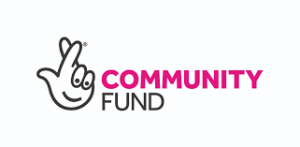Overcoming BDD Programme
Our Overcoming BDD Programme delivers evidence-based Cognitive Behavioural Therapy (CBT) techniques in a peer-led online group format
We often hear from our beneficiaries how the variation across NHS services leads to difficulties in accessing effective evidence-based treatment for BDD. The National Institute of Clinical Excellence (NICE) recommends that people with BDD are offered a course of Cognitive Behavioural Therapy (CBT) which includes Exposure and Response Prevention (ERP) in either an individual or group format[1]. However, we hear too often that people with BDD fall through the gaps between primary and secondary care and are left unable to access this treatment which is vital for recovery from BDD. The Overcoming BDD Programme was developed to fill this gap and ensure those who are unable to access statutory care have an alternative, effective and evidence based option.
More about the Programme
The Overcoming BDD Programme is open to individuals aged 18+.
The programme is 20 weeks in length, delivered online, and includes 3 key phases:
- Phase 1: Psychoeducation
- Phase 2: Behavioural Experiments and Exposure & Response Prevention
- Phase 3: Recovery Maintenance and Relapse Prevention
Each session lasts 2 hours and runs in a small group of 15-20 people with 2 facilitators delivering each session. This is to ensure that we have a supportive environment where the group can build connections and support one another. The session’s content is sent to participants ahead of the session, and participants are asked to complete weekly ‘homework’. This is in place to ensure everything learnt and covered in the groups can be put into practice, giving the best chance at overcoming BDD symptoms. Whilst being rooted in CBT for BDD, the group is unique in that it also provides peer support both between the participants but also from the group facilitators. As this is still a novel approach, we continue to evaluate the impact of this programme and collect data regarding outcomes specific to BDD and improved quality of life.
Within the previous 8 iterations of the programme, outcomes from the groups have been positive, with participants experiencing both a decrease in scores on the Appearance Anxiety Inventory (AAI) as well as improved quality of life.
Watch the webinar below to hear from former participants of the programme, and their reflections and experiences of taking part.
How to Join
To express interest in joining the programme and join our waitlist, please contact gem@bddfoundation.org. Our priority is always to ensure that each participant on the programme is accessing support that is going to be suitable and effective for them. For this reason, we follow a clinician approved application and screening process which allows us to ensure we are offering an appropriate option for those successful in securing a place.
We are currently delivering our Autumn 2025 programme. Our next groups are due to start in Spring 2026, and we are actively adding individuals to our waitlist for this Spring 2026 cycle. Please do reach out for more information or if you are interested in joining.
History of the Project
As a charity, one of our aims is to alleviate the suffering caused by BDD by providing information and support, and so the project formed as a response to the inconsistencies in statutory mental health care provision. We established a Structured Support Group (SSG) project (now known as Overcoming BDD Programme), where we deliver evidence-based CBT techniques in a group format online. As well as increasing access by delivering CBT in a group format, we also enable peer support both between participants of the group and from our team of Peer Facilitators who all have their own experiences of BDD. Peer support is vital for people living with BDD, as the condition often makes sufferers feel isolated and alone.
The pilot phase ran from 2018-2021, where we conducted three iterations of the pilot project. We collected lots of feedback from both our participants and our Peer Facilitators, so that we could evaluate its success and make improvements. You can read our impact report here:
We are now confident that our programme is a viable option for people with BDD who are unable to access statutory care and will continue to run the 20-week programme each year.

Join the conversation
Our social media community is very active and we welcome new members every day from around the world. Join us today on Facebook, Twitter, Instagram and Youtube, or become a member by joining our mailing list.
